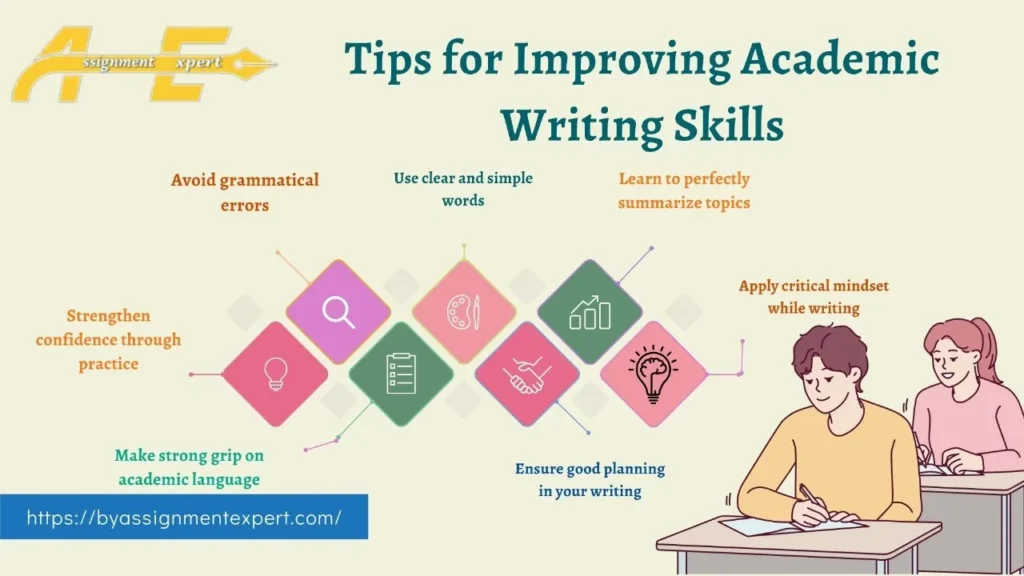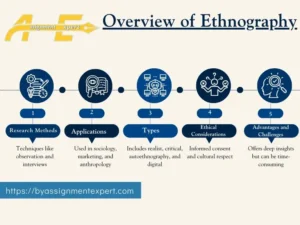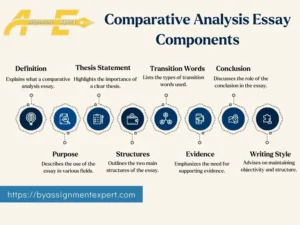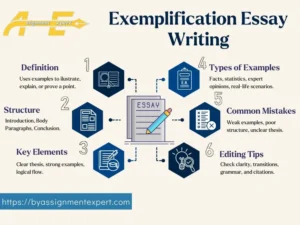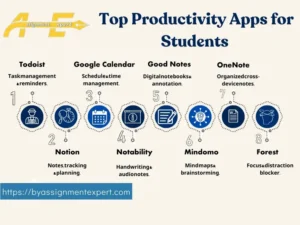Academic writing is one of the most vital skills that students pursue in histories, sociologies, economics, and many more. Good writing skill turns out to be so helpful for students, from composing essays and research papers to theses. You are not alone if sometimes you struggle with the complexities of academic writing. This guide will show you how to improve academic writing skills through practical tips and academic resources.
Why Do You Need to Improve Your Academic Writings?
One of the major goals of academic writing involves communicating your point in a coherent and concise manner. Whether you’re writing about history, sociology, or economics, your goal is to persuade, inform, or argue a point with evidence. Academically, better writing skills benefit you to develop professionally written assignments.
What Are the Major Academic Writing Challenges a Student Faces?
Students face challenges in academic writing for several reasons identified below:
Lack of Confidence
This will make you procrastinate due to the lack of confidence in your writing ability, which in turn leads to anxiety. Remember that academic writing is one such skill which improves with practice and the element of effort put in. First, initiate writing on minor tasks and then go forward doing the more complex assignments little by little.
Poor Preparation
Poor planning and preparation lead to a badly organized and vaguely written paper. Take the time necessary to research your topic adequately, outline your paper, and plan your argument before you start writing. Such preparation is particularly necessary in those subjects like sociology and history, where setting and background are so much a part of the argument.
Difficulty with Language
Working on academic writing can be quite tiresome when there is a language barrier in your way. If you feel that you have a poor grasp of English, avail yourself of the facilities of improvement tools, writing workshops, or tutors who will help you build up on your language.
Guidelines to Improve Academic Writing Skills
The improvement of academic writing skills is best accomplished through the processes of practice, feedback, and using available resources.
Regular practice
In developing any ability, writing skill improves with practice. Make it a habit to write daily, if only for a few minutes. Write article summaries, critiques of readings, or reflections on lectures.
Read Academic Literature
Reading academic literature exposes you to different writing styles, tones, and vocabularies. You will know how accomplished writers build up arguments or develop a case by reading journals, articles, and books within your discipline. For example, students of Sociology could read sociology journal articles that would clarify the spoken language and organizational behavior.
Focus on Structure
Begin with a specific thesis and outline your points in your mind before you start writing. Each paragraph should contain an obvious topic sentence, followed by proof or examples, and then a concluding sentence that shows how this relates to your thesis. This is especially true for writing history essays and economics essays or assignments, when logical flow and clarity are crucial.
Seek Feedback
Feedback is crucial to help you work on your writing. Give a draft of your writing to fellow-students, instructors, or writing tutors and ask them to give you feedback. They might have suggestions for how you could make your text clearer, more coherent, and/or better argued. Also, during revision, keep this kind of feedback in mind to help you to improve over time bit by bit.
How to Build Academic Writing in Strategic Way
Academic writing takes some time to develop and to build. There are several effective ways to do this:
Develop a Critical Thinking Mindset
If you’re reading a text or doing research, question the assumptions, analyze the arguments, and assess the evidence. It’s this analytical frame of mind that will enable you to make better and more convincing arguments in your own writing.
Learn to Paraphrase and Summarize
Paraphrasing and summarizing are deemed indispensable in academic writing. They give you the opportunity to weave others’ ideas into your work without falling into the trap of direct quotations.
Practice rewriting passages from your readings in your own words, using your own phrasing yet retaining the original meaning. This is specifically handy while working with thick academic texts on Economics or History.
Build Your Vocabulary
You could read some academic texts and make use of a thesaurus to learn new words and context in which to use them. However, do not use very complicated words just because you want to sound sophisticated. Clarity is more important than complexity.
Improve Grammar and Punctuation
Proper grammar and punctuation are all characteristics of academic writing. Grammatical errors may raise the ire of the readers and undermine your credibility. To improve, use grammar-checking tools and grammar guides to improve your knowledge. Practice identifying and correcting common mistakes made by you in your writings.
Tips to Improve Your Academic Writing Skills
Following is a list of useful tips that will guide you in improving your academic writing skills:
- Set apart daily or weekly time to write.
- Be exposed to various academic texts.
- Always begin writing by making an outline.
- Make sure all that you write is clear and concise.
- Avoid jargon and complex sentences when it is not needed.
- Edit and revise your work to be clear, coherent, and correct.
- Ask peers, instructors, or writing tutors to provide feedback, and then make the changes.
- Use online grammar, organization, and citation tools.
- Your thesis shall contain an argument and give a lead to the structure of your paper.
Digital Tools Strengthen Academic Writing Skills
Effective digital tools can help you enhance your academic writing skills. Here’s how:
Grammar and Spell Checkers
Tools like Grammarly and Hemingway Editor help identify grammatical and punctuation errors, enhance sentence structure, and ascertain that what one writes is clear and concise. These tools are very helpful, especially when one is proofreading their work before submission.
Reference Management Software
Reference and citation management is important in academic writing. Tools used for organizing sources into the right format for citations include Zotero and EndNote. This will be more useful in research-based subjects such as History and Economics.
Plagiarism Checkers
Plagiarism in academic writing is an abomination. The use of plagiarism checkers, such as Turnitin or the plagiarism feature of Grammarly, can save you by proving that all your work is original and sufficiently cited.
Digital Note-Taking Apps
Evernote and OneNote are classes of applications that allow you to organize your research notes, outline, and make a keepsake of your ideas. These tools will help you keep your research organized and show you how these applications work, especially when you have complex assignments.
Best Resources for Academic Writing
Following are some resources that a student can look for in perfecting their art of academic writing.
University Writing Centers
Most universities have writing centers where one gets to receive one-on-one tutoring and comments on their writing. Such canters are so helpful in improving one’s writing skills.
Online Courses on Writing
The websites Coursera, edX, and Udemy offer courses online targeted at enabling students to write academically. These courses range in level from grammar and style to advanced research writing.
Books on Academic Writing
There are numerous books available on how to write academically. Some of the more popular ones include “They Say, I Say,” by Gerald Graff and Cathy Birkenstein and “The Elements of Style” by Strunk and White. These provide you with some real tips and helpful strategies for becoming a better writer.
Workshops and Webinars about Writing
It improves writing through interactive sessions and guidance by experts in writing workshops and webinars that normally focus on specific aspects of writing, such as thesis development and argumentation.
Final Thoughts
Developing your academic writing skills requires determination, practice, and resources. You will further develop your writing style by following the tips presented above and using some of the recommended tools and resources. Whether it is a history essay, a Sociology research paper, or an Economics thesis, these strategies will enable you to communicate your ideas with confidence effectively.


